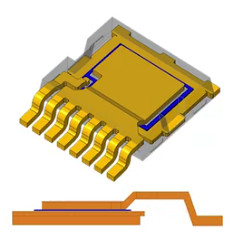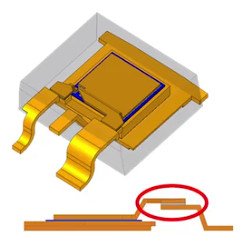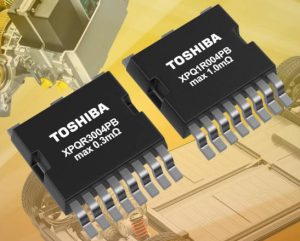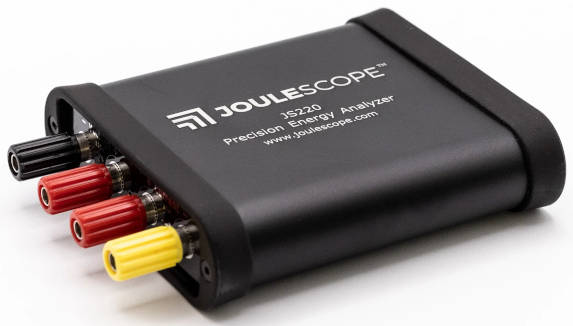
Branded L-TOGL and measuring 9.9 x 11.8 x 2.3mm (right), the AEC-Q101-capable package is designed for up to 175°C, 100V, 400A, 750W, with minimum mosfet device Rds(on) around 300μΩ.

This compares with 250A, 372W and ~740μΩ from the company’s existing 100V, 175°C 10 x 13 x 3.5mm TO-220SMW surface-mount package (left).
To cut electrical and thermal resistance, inside Toshiba has moved away from a soldered lap joint (‘post’ construction) between source metal and package legs in favour of a copper clip, and has thickened internal conductors generally.
Despite being smaller, L-TOGL can accept larger die than TO-220SMW – a second reason for that lower minimum on-resistance.
Gull-wing leads are retained as they can be visually inspected and their flexibility can mitigate against the effects of stresses running through a PCB. “FR4 and FR5 equivalent glass-epoxy boards can be used without problems even in harsh environments,” said Toshiba.
 For the new 400A mosfet, called XPQR3004PB (right), thermal resistance is 0.2°C/W and on-resistance is 0.3mΩ (Vg=10V).
For the new 400A mosfet, called XPQR3004PB (right), thermal resistance is 0.2°C/W and on-resistance is 0.3mΩ (Vg=10V).
There is also a 200A 0.65°C/W and 1mΩ device, XPQ1R004PB.
The required copper PCB pattern is remarkably similar to that required for Infineon’s TOLL (TO-leadless) automotive mosfet package.
The two mosfets are AEC-Q101 qualified and rated up to 175°C, and the company can offer per-reel gate threshold matching to 400mV (but not specific threshold voltages).
Use if foreseen in ‘integrated starter-generators’ as well as in electronic relays.







